-
Content count
1,394 -
Joined
-
Last visited
-
Days Won
7
Posts posted by Sir Darius the Clairvoyent
-
-
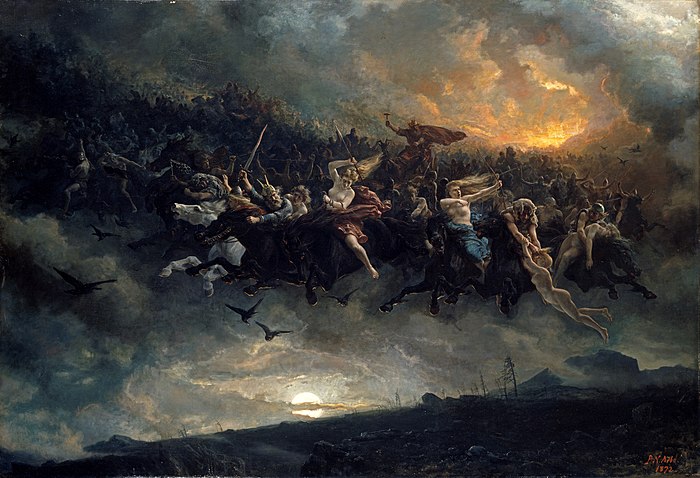
Oskerei (the wild hunt of Odin) by Peter Nicolai Arbo (1872)
-
 1
1
-
-
-
Can anyone explain this to me? Is it related to Platos republic?
-
 1
1
-
-
1 minute ago, Thrice Daily said:lovely, i've never been but I hear nice things.
Come come. We go to poland all the time. We are only an hour away after all.
-
1 minute ago, NaturaNaturans said:Norway
But Norway is no Island my Friend, and thankfully we have a large polish community. Second biggest minority after swedes I belive.
-
9 minutes ago, Thrice Daily said:Where are you based?
Norway
-
In scandinavia we only have one species, the gaupe.
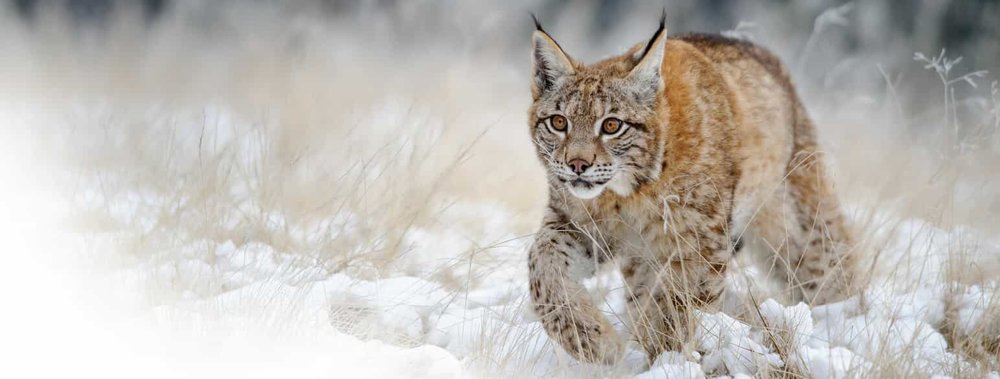
i read about the asiatic lion yesterday. Now it is limited to a resovar in gujarat, but historically it existed all the way to greece. Alexander the great hunted one in his youth. Here is an assyrian depiction of it (600bc):
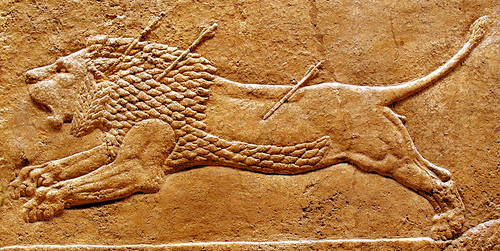
The lion is also used on a whole lot of coat of arns in northern Europe. Problem is, most northren europeans have never seen one, so when the swedish king ordered one, they made it like this:
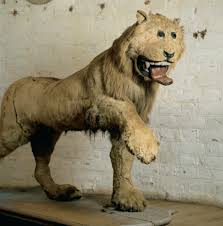
(1700s)
Here is a jaguar high on dmt:
and here is a man facing a lion with toilet paper:
-
 2
2
-
-
I think its great. I do not expect many (pr any) to Watch it, but If anyone is interrested, here you go
-
1 hour ago, ChiDragon said:This was not meant for you. My friend.
Apologies, sometimes I like to Get high
-
 1
1
-
-
Let me Ask you the same question, what are Your thoughts on lutheranism?
Lutheranism advocates a doctrine of justification "by Grace alone through faith alone on the basis of Scripture alone", the doctrine that scripture is the final authority on all matters of faith. This contrasts with the belief of the Roman Catholic Church, defined at the Council of Trent, which contends that final authority comes from both Scripture and tradition.[3]
-
Just now, Thrice Daily said:I'm more into the Christians than the church itself. They say its the human souls that make the mystical body of Christ, not the church, does that make sense? It seems Christians are the only ones standing up to the Lies and Hypocrisy in our times. Tucker Carlson, RFK, Patrick Bet David, Chris Cuomo, Candice Owens, even Russel Brand. The people they try to cancel and that get many death threats, They have my endorsement, those standing up to big food, big pharma, and the military industrial complex etc these are the brave ones. I'm not into Gates and Comilla and Cheney , I think these are more in toe with what you are saying, trying to rewrite truth and push death and destruction, not modern Christians, right here right now...
Yes, that makes sense. I have no issue with Christ. I have an issue with those who pretend to speak for him.
-
34 minutes ago, Thrice Daily said:What are your thoughts on the Catholic Church @NaturaNaturans
So summarized, wolves in sheeps clothing
-
In addition, the idea of a middle man (mr pope) is so unchristian as it could be.
-
25 minutes ago, Thrice Daily said:What are your thoughts on the Catholic Church @NaturaNaturans
Allow me to qoute Nietzche:
“All that once was evil is now good; all that once was good is now evil. They seek to transvalue all values – they are the ones who break the tables of old values, the breakers, the lawbreakers; they are the creators.”:
-
6 minutes ago, Thrice Daily said:The catholic church very nearly wasn't here.
One of the main reasons I decided to go "all in" in favour, was because of this battle.
In 1571 the Ottoman Empire was threatening Europe. The Ottoman fleet was waiting in the Gulf of Patras, ready to attack Rome and other Christian territories and the Christians were seriously outnumbered. Pope Pius V asked everyone to pray the Rosary for victory, believing that prayer could help. During the battle near Greece, the Holy League's smaller fleet managed to defeat the larger Ottoman navy, which was a huge surprise, It's interesting to think about how history could have gone differently if the Ottomans had won. Would it have been better or worse for Europe?
The way I see it, if the powers that be, whatever governing force that flows through existence, be in divine Love or the Forever Changing Tao wanted the Church gone it would have been wiped out in this battle.
For me there is a reason it wasn't and that reason is enduring, its the reason I decided not to look into becoming Orthodox, because for better or worse, the Catholic church was "Built on Jesus" through Peter as the first Pope, (I personally believe that no matter what the group even an Autocracy, someone needs to have the final say, someone has to make decisions, and the rules can change over the years, it can be alive as such)
It could have been wiped out in the 1500's in which case I don't think I would have got so far in my process to become Christian, the outcome of the battle helped me early on begin to dig a little deeper and find out a little more... Faith I suppose.
Following Your logic, was it Gods will that made the lutherans victorious in the 30 years war?
-
Just now, Cobie said:Inside yourself.
Thats beautifull
-
 2
2
-
 1
1
-
-
-
15 minutes ago, ChiDragon said:Somebody don't even bother to do some fact checks before defying it. How can one deny the facts without any knowledge of it and assumed it was an opinion. For example, isn't cell respiration a modern truth.
I dont follow brother
-
4 minutes ago, Thrice Daily said:Yeah, this is no mystery to me. Order and Chaos tend to follow one another all the way through history. Here is another perspective on scenarios back then.
The tribes that existed before Christianity were most often warring, engaging in raids and internal quarrels. I'm willing to bet the past was as atrocious if not more atrocious to be a part of one of these tribes.
Now I'm looking into the past before Christianity I'm finding a lot of violence, warring, blood feuds, i'm still about 50/50 whether it was over all good or bad?? Bit it did happen and there is no denying that.
Here are some of the realities that were altered as a result, in real terms... Please don't reply back with more tales of bloodshed, all the tribes were up to that way before Christendom and as I've said in previous posts there are psychopaths and sociopaths in every walk of life.
The blood thirstyness of the Romans for Gladiator games, taking the kids to see that no doubt did on going damage to generations seeing all that blood at an early age... Gladly we moved away from this passtime.. Can you guess why?
Here are some of the realities and how they were altered...
1. Western Europe
- Introduction of literacy and education: The spread of Christianity brought written language, literacy, and education to many previously illiterate tribes. Monasteries, churches, and cathedral schools became centers of learning, preserving classical knowledge, and teaching new skills. The development of Latin as a scholarly language unified various tribes under a common intellectual framework.
- Social welfare: Christian institutions promoted charity and care for the poor, sick, and needy. Monasteries often operated hospitals, orphanages, and shelters, contributing to the rise of organized social welfare systems.
- Legal systems: The influence of Christian ethics helped shape early European legal codes. The moral principles of justice, mercy, and the sanctity of life helped reform some tribal practices like vendettas or honor killings.
- Unification: Christianity provided a unifying force in fractured tribal societies. Leaders like Charlemagne in France and King Alfred in England used Christianity to bring together warring tribes and create more cohesive and centralized states.
2. Scandinavia
- End of human sacrifice and violent customs: The Christianization of the Vikings (Norway, Sweden, Denmark) led to the gradual abandonment of human sacrifices and other violent religious practices. Christian teachings on the value of human life helped reduce some of the more brutal aspects of Viking culture.
- Legal and moral frameworks: Christianity introduced more structured and ethical legal systems, reducing blood feuds and introducing concepts of justice and forgiveness into law. For example, the Icelandic Althing (parliament) embraced Christianity in the year 1000, ending internal conflict between pagan and Christian factions.
- Cultural development: Alongside the new faith came new forms of art, literature, and architecture, such as the building of cathedrals and churches, and the creation of Christian manuscripts like the Book of Kells.
3. Ireland
- Golden Age of Monasticism: Ireland became known for its monastic culture, which played a key role in preserving classical knowledge during the so-called Dark Ages. Irish monks like St. Patrick and Columba spread Christianity across the island and into Scotland, while Irish monasteries became centers of learning and artistic production (e.g., illuminated manuscripts).
- Social structure: Christianity helped reduce some of the harsh tribal customs, such as clan-based warfare and practices related to slavery. Over time, it influenced a more unified legal system, especially through the Brehon Laws, which began to incorporate Christian ethics.
- Education and scholarship: Irish monasteries also became renowned for their scholarship and played a key role in the transmission of knowledge across Europe.
4. Eastern Europe
- Cultural development: In areas like Russia, Ukraine, and Bulgaria, the introduction of Eastern Orthodox Christianity through figures like Cyril and Methodius brought the Cyrillic alphabet, leading to increased literacy and the development of national literature. The Christianization of Kievan Rus under Vladimir the Great in 988 AD marked the beginning of a unified religious and cultural identity.
- Centralized governance: Christianity often worked hand in hand with the centralization of power. For example, in Bulgaria and Serbia, it supported the rise of powerful Christian kingdoms that integrated Christian teachings into governance and law.
- Arts and architecture: Christianity led to the development of stunning Byzantine-style architecture, especially in the form of domed churches and religious art like iconography. This religious and cultural transformation left a lasting imprint on Slavic societies.
5. France
- Clovis and the Franks: The conversion of Clovis, King of the Franks, to Christianity in 496 AD helped unify the Frankish tribes under one Christian rule, providing a foundation for the future Carolingian Empire. The spread of Christianity helped pacify tribal warfare and contributed to the creation of stable kingdoms in Gaul.
- Support of the arts: Under Christian rule, the arts flourished. Monasteries became hubs of artistic creation, particularly in the form of illuminated manuscripts, religious music, and Gothic architecture.
- Moral and legal reforms: Christian influence moderated tribal customs, with a focus on Christian virtues such as charity, forgiveness, and the sanctity of marriage. The Church helped introduce reforms against polygamy and infanticide, which were common in some tribes.
6. Germanic Tribes
- Unification and centralization: The Christianization of the Germanic tribes helped unify them under larger political entities. For example, the Saxons were united under Charlemagne following their conversion, which led to the creation of the Holy Roman Empire. Christianity helped reduce internal tribal conflict by promoting a shared faith.
- Moral reformation: Christianity replaced some of the more violent aspects of Germanic tribal law, like blood feuds and revenge killings, with Christian concepts of justice, peace, and mercy.
- Scholarly and cultural growth: Germanic tribes that converted, such as the Franks and the Saxons, saw growth in literacy and education. The monastic system brought schools, libraries, and a more systematic recording of laws, customs, and history.
7. Celtic Tribes
- Preservation of culture and learning: While Christianity brought new ideas, it also helped preserve much of the Celtic cultural heritage. Celtic Christianity, which developed in Ireland, Scotland, and Wales, maintained some aspects of traditional Celtic art, poetry, and culture while integrating Christian ideas.
- End of certain violent customs: Some of the tribal warfare and warrior-based culture that dominated Celtic society were softened by Christian teachings of peace, forgiveness, and community.
- Monastic contributions: Celtic monasticism played a critical role in the preservation of learning during the early medieval period, with monks creating manuscripts and spreading Christian influence across both Ireland and Britain.
8. Spain and Portugal
- Reunification: Christianity was central to the Reconquista, the process of driving out the Moors and reclaiming Iberia for Christian rule. This was a key factor in the eventual unification of Spain under Ferdinand and Isabella.
- Cultural synthesis: The Christian kingdoms of Spain and Portugal benefited from interactions with Islamic and Jewish cultures, which led to advancements in art, science, and literature. Christianized Iberia became a center of Renaissance learning.
- Education and exploration: Christian missionaries from Spain and Portugal were among the first to venture into the New World, setting the stage for global exploration and the spread of Christianity worldwide.
Thankyou for reading this part of our shared Christian history, I hope it further colours your perspective of what went down...
additionally re it being about 50/50 violent/non violent,,,
1. Western Europe (Franks, Gauls, etc.)
- Mostly peaceful, though some military influence was present, particularly with leaders like Charlemagne, who used force to convert the Saxons in modern-day Germany. Overall, Christianity spread largely through alliances and royal conversions.
2. Scandinavia (Vikings: Norway, Sweden, Denmark)
- Mostly violent. The Viking kingdoms often resisted Christianity, and force was used to convert them, particularly by Christian kings like Olaf Tryggvason and Harald Bluetooth. Pagan temples were destroyed, and Christian monarchs imposed the new faith.
3. Ireland
- Mostly peaceful. The spread of Christianity in Ireland is one of the few examples of relatively peaceful conversion. St. Patrick and later missionaries worked through preaching and establishing monasteries, and Irish kings gradually accepted the new faith.
4. Eastern Europe (Russia, Bulgaria, Ukraine, etc.)
- Mostly peaceful, though some coercion occurred. Conversion of Kievan Rus under Vladimir the Great involved a top-down approach, with royal decree rather than mass violence. In some cases, however, resistance led to conflict.
5. France (Franks, Gauls)
- Mostly peaceful, though political motives played a role. Clovis I's conversion was pivotal, and he used his Christian faith to unify the Franks. Charlemagne’s campaigns against the Saxons, however, were more violent in nature.
6. Germanic Tribes (Saxons, Lombards, Goths, etc.)
- Mostly violent. Tribes like the Saxons resisted Christianity, and conversions were often forced through campaigns by Charlemagne and others. Resistance to Christianization led to wars and mass executions, such as the Massacre of Verden.
7. Celtic Tribes (Scotland, Wales, Ireland)
- Mostly peaceful. Celtic Christianity spread through missionary work, particularly in Ireland and Scotland, where monasteries played a large role. There was less violent resistance compared to other regions.
8. Spain and Portugal
- Mostly peaceful, though later tied to violence during the Reconquista. Early conversions were more peaceful, driven by kings and monks. However, the Reconquista involved both religious and political conflict between Christians and Muslims.
It seems the more violent conversions were with the tribes that typically historically were already the most warlike and er violent... So it makes sense really doesn't it that there was more fighting, just directed at in coming forces rather than neighbouring lands they were trying to take a piece of land or in-fighting within the same tribe itself or factions of it, but less afterwards as stated above, would like to hear your thoughts...
very normal stuff by the looks of it for these guys, until later...
Well, instead of focusing on the most violent pre Christian polities, why not focus on the most violent european institution by a long shot? Namley the chatolic church.
-
 1
1
-
3 hours ago, Miffymog said:I like @ChiDragon!
I dont know him (or her, dk) after reading this thread. Not that I know anything about him, but he seems genuine and true to himself, with a sense of humour.
-
 2
2
-
 1
1
-
-
@Thrice Daily you mentioned somewhere that christianity created the west… others might say it destroyed Europe.
"And so she opens her book with a potent description of black-robed zealots from 16 centuries ago taking iron bars to the beautiful statue of Athena in the sanctuary of Palmyra, located in modern-day Syria. Intellectuals in Antioch (in ancient Syria) were tortured and beheaded, as were the statues around them. The contemporary parallels glare. The early medieval author known as Pseudo-Jerome wrote of Christian extremists: "Because they love the name martyr and because they desire human praise more than divine charity, they kill themselves." He would have found shocking familiarity in the news of the 21st century.
Nixey closes her book with the description of another Athena, in the city of her name, being decapitated around A.D. 529, her defiled body used as a steppingstone into what was once a world-renowned school of philosophy. Athena was the deity of wisdom. The words "wisdom" and "historian" have a common ancestor, a proto-Indo-European word meaning to see things clearly. Nixey delivers this ballista-bolt of a book with her eyes wide open and in an attempt to bring light as well as heat to the sad story of intellectual monoculture and religious intolerance. Her sympathy, corruscatingly, compellingly, is with the Roman orator Symmachus: "We see the same stars, the sky is shared by all, the same world surrounds us. What does it matter what wisdom a person uses to seek for the truth?"
https://www.nytimes.com/2018/06/08/books/review/catherine-nixey-darkening-age.html -
6 minutes ago, Cobie said:It was created by the Zhou to justify their takeover from the Shang.
I read a tiny bit on Confucious yesterday. Is this accurate, and do chinese tend to subscribe to it?
5. The Family and the State
Early Zhou political philosophy as represented in the Classic of Odes and the Classic of Documentscentered on moral justification for political authority based on the doctrine of the "Mandate of Heaven" (tianming 天命). This view was that the sage's virtue (de) attracted the attention of the anthropomorphized cosmic power usually translated as "Heaven" (tian天), which supported the sage's rise to political authority. These canonical texts argued that political success or failure is a function of moral quality, evidenced by actions such as proper ritual performance, on the part of the ruler. Confucius drew on these classics and adapted the classical view of moral authority in important ways, connecting it to a normative picture of society. Positing a parallel between the nature of reciprocal responsibilities of individuals in different roles in two domains of social organization, in the Analects Confucius linked filial piety in the family to loyalty in the political realm:
It is rare for a person who is filially pious to his parents and older siblings to be inclined to rebel against his superiors… Filial piety to parents and elder siblings may be considered the root of a person. (1.2)
This section examines Confucius's social and political philosophy, beginning with the central role of his analysis of the traditional norm of filial piety.
Confucius (Stanford Encyclopedia of Philosophy)
-
1 minute ago, Thrice Daily said:When you think of all the horror movies made about it it’s quite dreadful what we have been palmed off with as true history.
I agree. 100%
It is terrifying to think of the goblins Out there deciding what events are okay and not okay for children to learn about. Hence why I reccomended Ellingsvåg to @blue eyed snake
-
Can anyone explain the mandate of heaven to me?

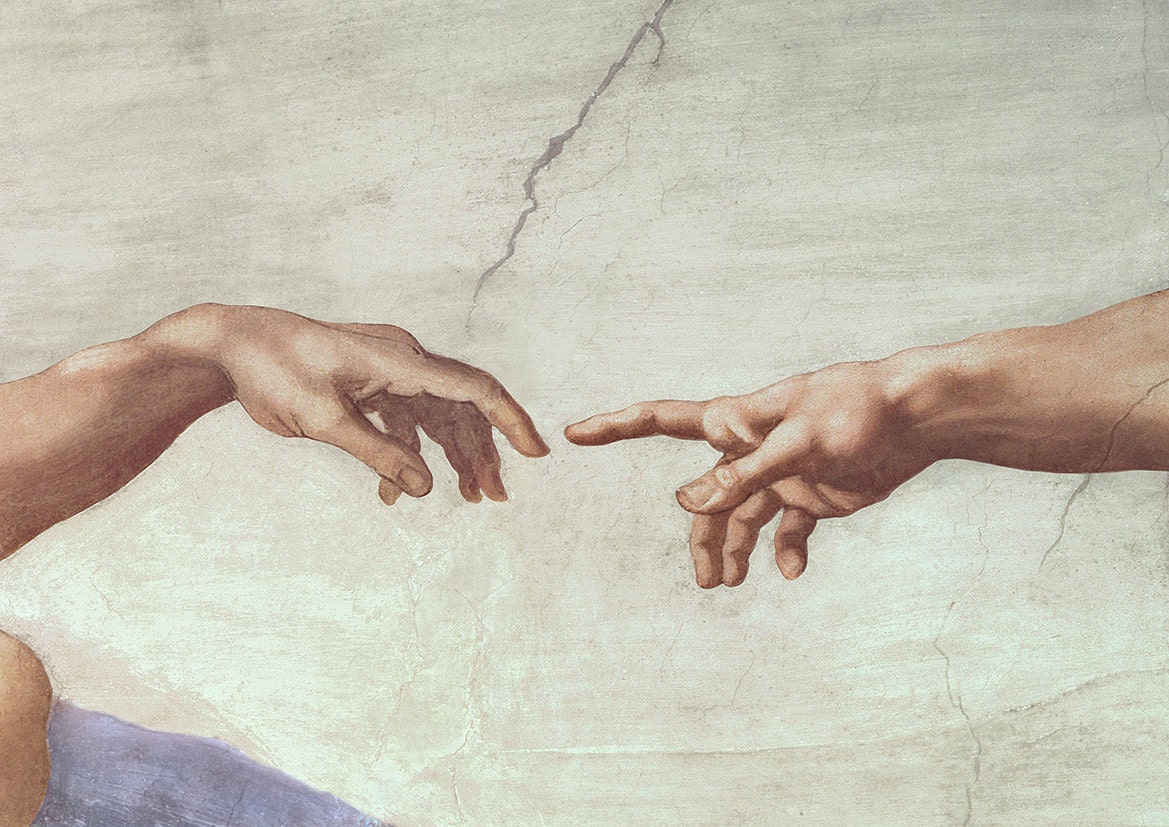
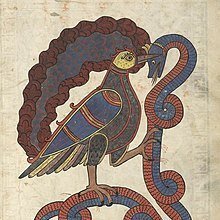
Christianity
in Abrahamic Religions Discussion
Posted · Edited by NaturaNaturans
Well, they had their way of Life. I am not sure if being turned in to slaves, tortured til they accepted christ and seing their cities burned down made their Life any better